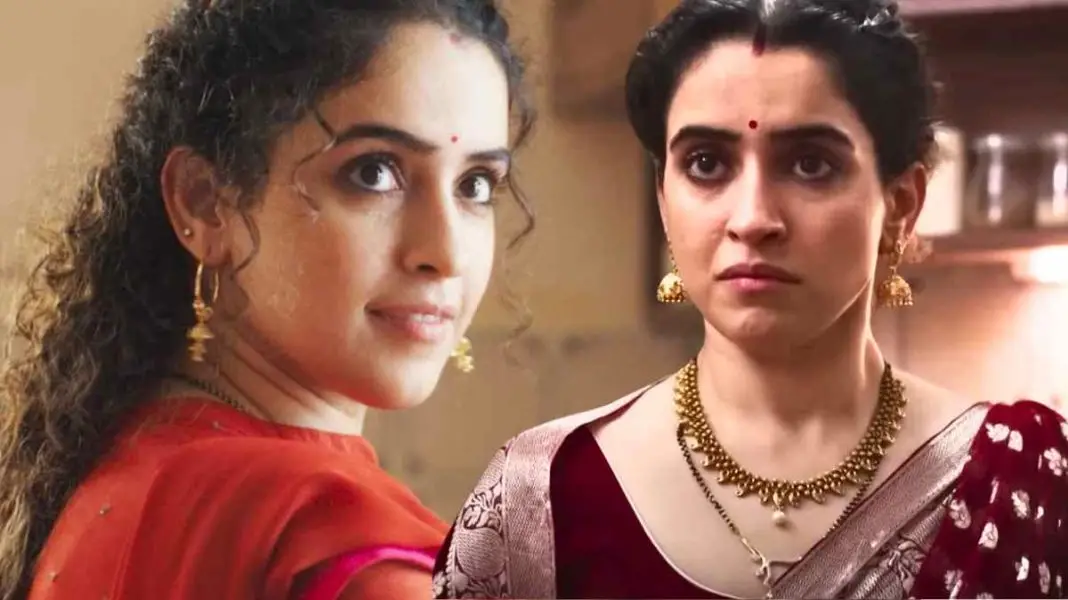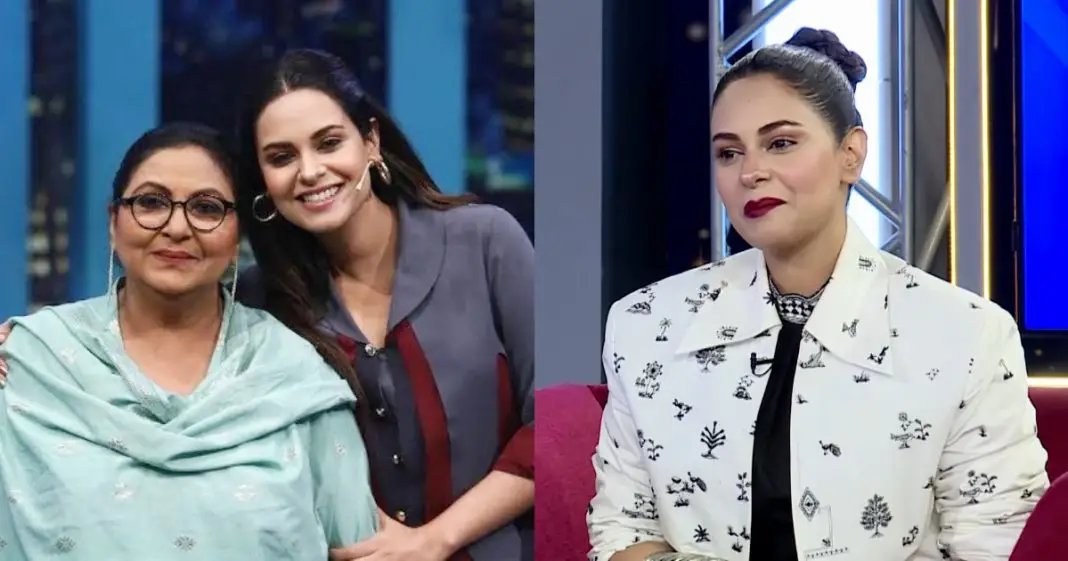Mrs. (2025), directed by Arati Kadav and starring the brilliant Sanya Malhotra, is a Hindi adaptation of the critically acclaimed Malayalam film The Great Indian Kitchen (2021). A deeply unsettling yet necessary cinematic experience, Mrs. holds up a mirror to patriarchal traditions and the silent struggles of women trapped in societal expectations. However, while the film is a powerful commentary on gender roles, it also faces criticism for its rushed ending and one-dimensional supporting characters.
A Gripping Premise with an Overwhelming Emotional Load
The story revolves around Richa (Sanya Malhotra), a trained dancer who enters an arranged marriage with Dr. Diwakar (Nishant Dahiya). Soon, her marital life turns into a cycle of relentless household duties, suffocating traditions, and an emotionally distant husband. The film masterfully depicts how Richa’s individuality gets eroded under the weight of domestic expectations—something many Indian women, especially from middle-class households, will relate to.
While Mrs. is an intimate portrayal of a woman’s emotional turmoil, it is also an exhausting journey. The tension builds beautifully, making the audience feel the protagonist’s frustration, but as anticipation peaks, the film abruptly ends, leaving viewers craving a more satisfying resolution.
Performances: A Career-Defining Act by Sanya Malhotra
The standout element of Mrs. is undoubtedly Sanya Malhotra’s nuanced performance. Her ability to express suffocating frustration, quiet despair, and ultimate resolve through minimal dialogue and expressive body language is phenomenal. Her subtle reactions and moments of silent agony resonate deeply, making the audience root for her throughout the film.
However, the supporting characters—particularly Richa’s husband and father-in-law—are almost caricatures of patriarchal oppression. The lack of complexity in their writing makes them feel like mere narrative tools rather than fully fleshed-out individuals. This one-dimensional portrayal weakens the film’s social message, as some male viewers may easily distance themselves from the depicted toxicity, thinking, “I’m not that bad.”
Cinematography & Symbolism: A Visual Triumph
Visually, Mrs. is stunning. The film’s cinematography and production design are layered with symbolism—Richa adjusting only female statues while ignoring male ones, the oppressive presence of the kitchen, and the hauntingly mundane shots of household chores all work to reinforce the film’s themes. These moments add depth and make Mrs. a film that speaks as much through its visuals as through its narrative.
However, while the cinematography is excellent, the background score could have been more impactful. Many viewers felt that the film’s emotional weight was not fully supported by its music, which could have intensified the already powerful storytelling.
A Slow Burn That Stirs Debate
One of the most polarizing aspects of Mrs. is its pacing. The film takes its time, lingering on everyday domestic routines to emphasize the monotony and burden placed on women. Some found this approach immersive and necessary, while others felt it made the film feel repetitive and stretched out, especially in its first half.
The ending, which many found abrupt and unsatisfying, is another point of contention. Just as the tension reaches its peak and the audience expects a cathartic release, the movie ends too suddenly. This left some viewers frustrated, feeling as if the film built up to a moment that never truly arrived.
Final Verdict: A Must-Watch with Caveats
MRS is an undeniably important film that highlights the gendered expectations within Indian households. Its bold storytelling, stunning visuals, and Sanya Malhotra’s remarkable performance make it a compelling watch. However, the lack of nuance in supporting characters, the overwhelming emotional weight without balance, and the rushed ending hold it back from being a masterpiece.
For those who appreciate slow-burn, thought-provoking cinema that challenges societal norms, Mrs. is a must-watch. But for viewers looking for a more structured narrative with a satisfying payoff, it may leave them feeling emotionally drained rather than fulfilled.
Pros:
✔️ Sanya Malhotra’s exceptional performance
✔️ Strong social message on patriarchy and gender roles
✔️ Beautiful cinematography with meaningful symbolism
✔️ Thought-provoking and emotionally engaging
Cons:
❌ One-dimensional supporting characters
❌ Abrupt ending that leaves the audience wanting more
❌ Background score could have been stronger
Final Rating: 7.5/10
Mrs. is a film that will divide audiences—some will love its rawness, others will find it an exhausting watch. Either way, it’s a conversation starter and a necessary addition to Indian cinema.



